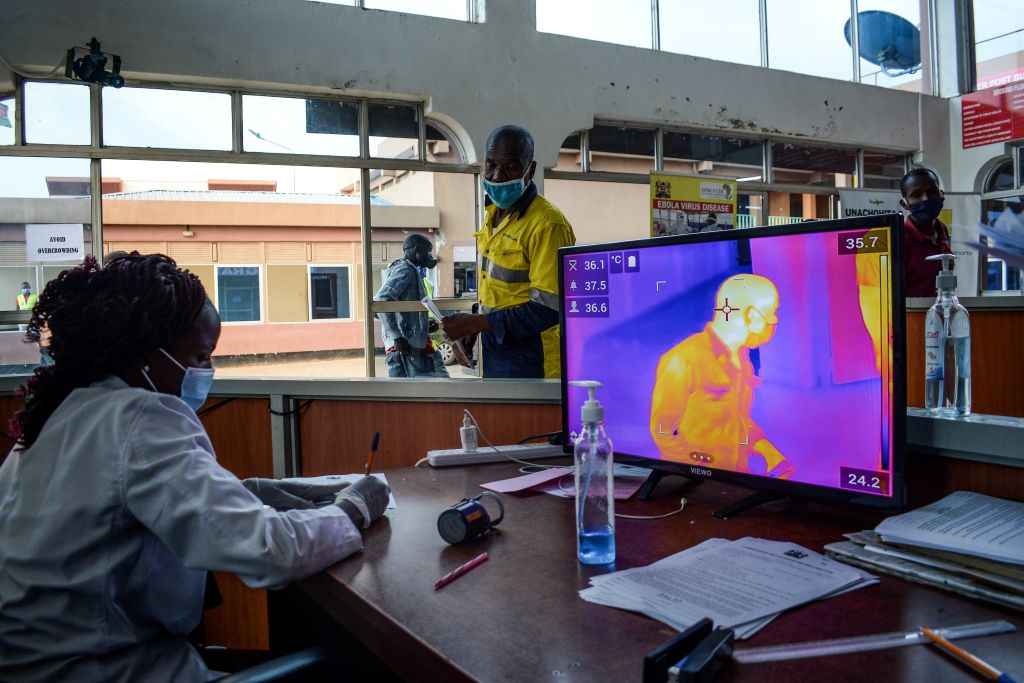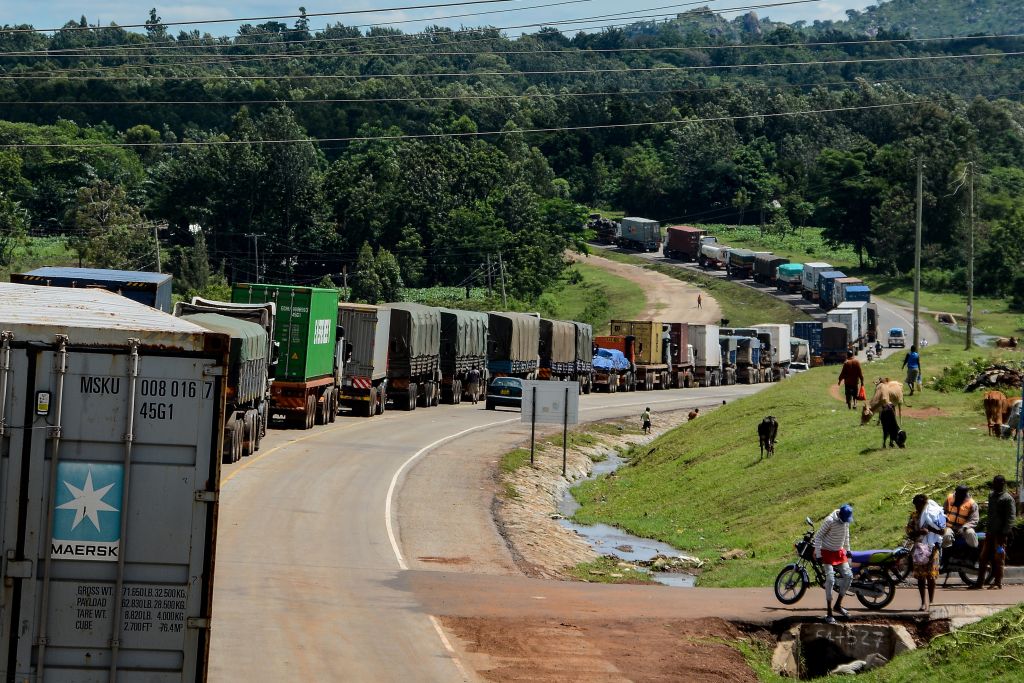ADF STAFF
One of Africa’s leading research labs says it has discovered a new strain of the virus that causes COVID-19 in Uganda.
Professor Pontiano Kaleebu, executive director of the Uganda Virus Research Institute, announced the discovery in mid-February. The new strain, named A.23.1, also has turned up in Rwanda, the United States and the United Kingdom. It is now the dominant form of COVID-19 in the Ugandan capital, Kampala. The capital accounts for up to 80% of Uganda’s 40,200 infections.
The Ugandan variant is different from the one that has caused most new infections in South Africa recently. That variant is circulating in Southern and East Africa. A separate variant, which originated in the United Kingdom, is circulating in West Africa, according to the Africa Centres for Disease Control and Prevention.
Other variants have appeared in Nigeria and Kenya recently.

Like all variants, the Ugandan strain has mutations. In some cases, those mutations resemble the changes in the variant that arose in the U.K. that was 30% to 50% more infectious than the original virus.
“It is not known whether this one is more transmissible or not,” Kaleebu said, “but we are going to follow up on that by carrying out laboratory checks and working with our hospitals.”
Kaleebu said Uganda recorded several versions of the coronavirus from various sources worldwide. The source of the A.23.1 variant is not clear, but truck drivers coming in from ports have been a common source of virus transmission for the landlocked country, according to preliminary research published in the online journal medRxvi.
“Continued monitoring of all truck drivers coming in and out of Uganda is therefore very important and would help us to better understand the inland cross-country import and export and circulation of strains in this part of world,” stated the research team led by Daniel Lule Bugembe of the Uganda Virus Research Institute.
According to the analysis, Uganda began the pandemic with a variety of coronavirus versions circulating due to the country’s air connections to Europe, Asia and the Middle East, and its location at the nexus of two trans-African highways. After air travel stopped in early 2020, the variants started to narrow before reaching the point that A.23.1 is the predominant strain in the country.
Mutations happen as a virus replicates its way through a population. The more a virus spreads, the more opportunities it has to mutate. For that reason, public health experts continue to stress the need to break the chain of transmission by using masks, hand-washing and social distancing.
Most mutations go nowhere, but certain changes in the right places can help a virus avoid being attacked by the body’s immune system.
Vaccines teach the body to recognize a virus and prepare its immune system to fight. Recent COVID-19 variants have made changes to the spike protein the virus uses to penetrate cells in order to reproduce. Those changes have reduced some vaccines’ effectiveness.
Uganda’s Ministry of Health has requested 18 million doses of the AstraZeneca vaccine for distribution across the country. Those should arrive in March.

